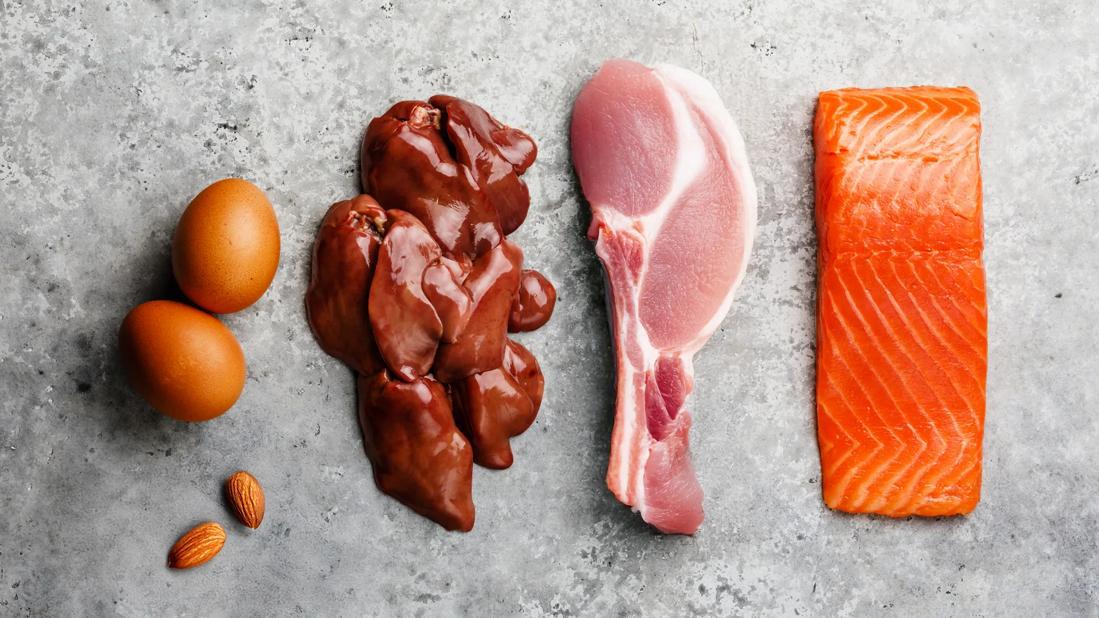Biotin: What Are the Benefits? And Do You Really Need Supplements?
This essential nutrient helps convert food into energy, but don’t expect wonders for your nails and hair

If you do a web search for biotin, probably the first thing that pops up is a laundry list of supplements. Most of which claim to give you long, shiny locks and super-strong nails.
But biotin does much more for your body than those supplements claim. And enhancing your hair and nails isn’t necessarily at the top of the list. What’s more, you probably don’t need to shell out for those bottles of biotin to reap the benefits.
Registered dietitian Courtney Delpra, RD, LD, explains the possible benefits of biotin — both from the foods you eat and from supplements.
What is biotin?
Biotin is a B vitamin (B7, to be specific) that’s important for many body functions.
Biotin helps metabolize food — turning food into energy. And many people swear that biotin has improved their hair, skin and nail health, too.
B vitamins, including biotin are water-soluble. That means that your body doesn’t hang on to more of it than you need. But that doesn’t mean you can’t overdo it on biotin. More on that in a bit.
Benefits of biotin
Biotin is an essential vitamin, which means you can’t live without it.
Biotin plays an important role in giving you fuel to go about your day. That’s because one of its top benefits is that it helps convert carbohydrates, fats and proteins into energy.
How?
“Biotin is a co-factor for enzymes that help to break down fatty acids, glucose and amino acids,” Delpra explains. “We need certain enzymes to break down the foods we eat so we can metabolize them. And those enzymes don’t work properly without biotin.”
Biotin is also involved in maintaining healthy nervous system function. And it helps with gene functions.
Biotin and hair and nail health
Perhaps biotin’s biggest claim to fame is that it’s gotten quite a reputation in the beauty industry in promoting healthy skin, hair and nails.
That’s because biotin deficiency (not having enough biotin) can lead to issues like:
- Brittle nails
- Hair loss
- Red, scaly rash
The trouble with that thinking?
“Biotin deficiency is rare in the U.S.,” Delpra clarifies. “So, if you have thinning hair or brittle nails, it’s probably not due to a biotin deficiency. There’s usually another health condition causing these problems, such as iron deficiency or a thyroid issue.”
OK, you’re thinking, maybe I don’t have a biotin deficiency necessarily. But maybe more biotin can still give me shining locks, right?
Ehhh...
“No studies have proven that biotin supplements will change the appearance of your hair, skin or nails,” Delpra shares. “But some people will tell you that taking a biotin supplement helps them boost hair and nail growth.”
How much biotin do you need?
Most people get adequate biotin through a healthy diet. Recommended daily intakes for biotin are as follows:
- Under 6 months: 5 micrograms (mcg)
- 7 to 12 months: 6 mcg
- 1 to 3 years: 8 mcg
- 4 to 8 years: 12 mcg
- 9 to 13 years: 20 mcg
- 14 to 18 years: 25 mcg
- 19 and older: 30 mcg
- Pregnant: 30 mcg
- Lactating: 35 mcg
That’s much (much) less than the biotin content you’ll find in some common supplements.
Adult daily multivitamins and prenatal vitamins typically contain 100% of your recommended daily value for biotin. Other supplements, like “super B” vitamin formulations or vitamins that promote hair and nail growth can contain a lot more. We’re talking in the neighborhood of 10,000% of your daily value.
Foods that contain biotin
The good news is that most people get all the biotin they need from a healthy diet.
“Biotin is in many of the foods we eat,” Delpra points out. “And it’s always better to get your vitamins and minerals through a balanced diet rather than supplements.”
Biotin is found mainly in sources of protein. Foods like liver, eggs, salmon, pork, nuts and seeds are good sources.
Biotin supplement warnings
Biotin supplements can have some mild side effects.
"When starting supplementation, always speak with your doctor,” Delpra recommends. “Biotin supplements and B-complex vitamins are safe for most people, though they may cause a slightly upset stomach.”
The bigger trouble?
Taking supplements that contain biotin can interfere with the accuracy of certain medical tests, like thyroid function tests, heart disease screenings and even tests to determine if you’re having a heart attack.
Tell your healthcare provider if you’re taking any supplements that contain (or could contain) biotin.
More isn’t always better. Don’t take more than the dosage listed on the package and stop taking biotin if you notice side effects.
Bottom line
You can get your fill of biotin even without a supplement. In fact, most people do.
“Healthy food and proper hydration will help you feel and look your best,” Delpra advises.
What’s more, a healthy diet makes sure you’ll get your fill of other nutrients that fuel your body. Like healthy fats, protein, vitamins, minerals and fiber.
If you’re concerned that you’re not getting enough biotin in your diet, talk with a healthcare provider. They can test you for deficiencies and recommend strategies to help you live your healthiest life.